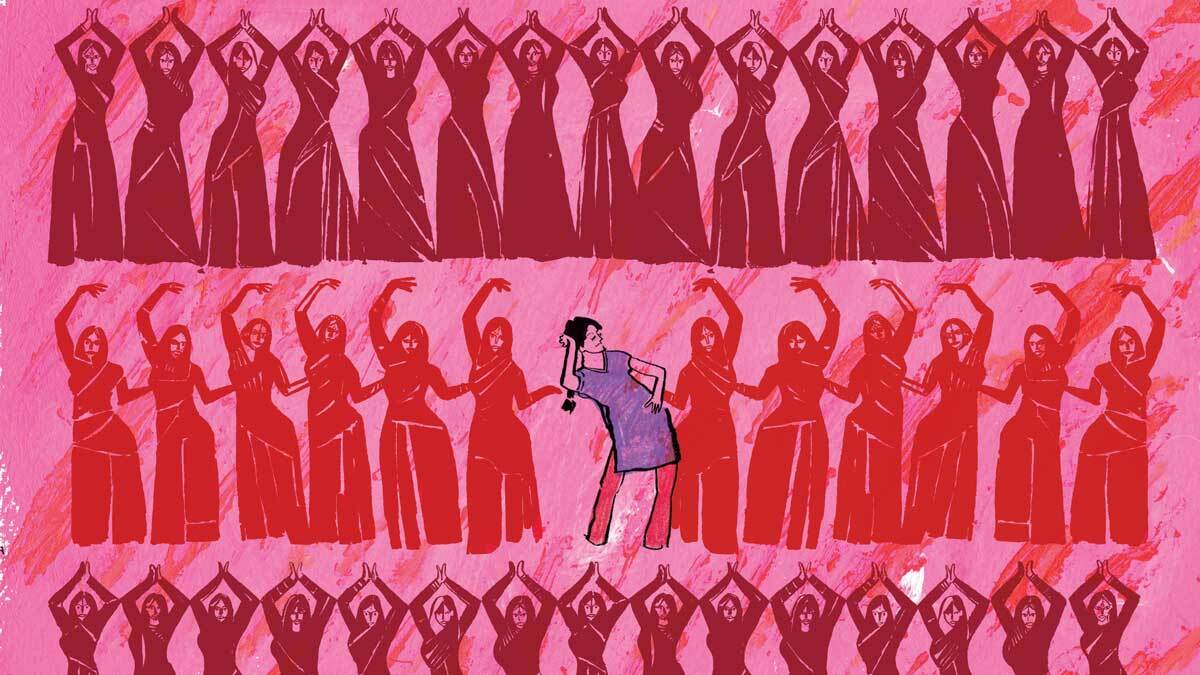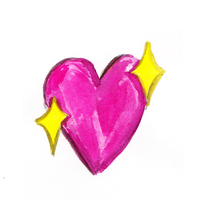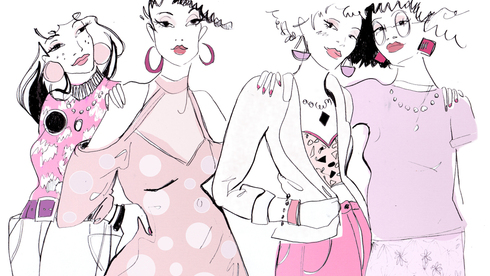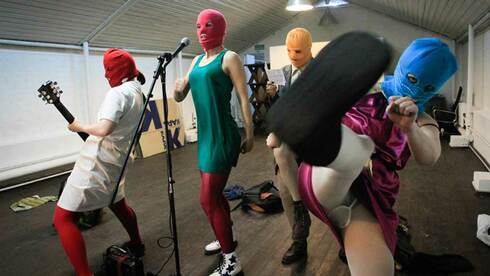Scherezade An Exploration of Feminism in Bollywood

So she wrote to me the other day and told me she was getting married. In three words over text I’m getting married exclamation point. The words caught in the back of my throat and I did not understand. Even though it’s been eleven long years since we first exchanged blood through our fingers in that dirty bathroom stall, hoping to melt into each other. I mean, there was that tiny droplet of her blood that rushed up my arm and lodged itself in my heart and I think it’s still there, congealed.
Scherezade, my Persian queen of queens, and around each other we felt electric. We would say to each other, sat in the bathtub over which I had painted two blue dolphins, that we would leave, and love and learn, we would drink and smoke and fuck, we would think and write and do, we would try everything. After all, we had seen it in the movies, we possessed the glamour Hollywood had so easily prescribed as our adolescence. What we never saw brown girls do on screen, we would do ourselves instead. And we did try even then, back home in India, in our small town full of bigots and perverts. We would hold each other’s small breasts wishing they would never grow, so that our defiance could be bodily. When we had boyfriends, we would find each other quickly after, kissing hungrily because we hated the way those boys tasted. One mirrored the potential the other sometimes forgot, because it was the only way to exist in a structure that had held us in its claustrophobic throttle.
But then she wrote me this message and I called her up, trying to remember the details of her face. So much had changed since the last time we met, the ways in which we saw the world. The details of her wedding just rolled off her tongue, so smoothly… It had been arranged; a Zoroastrian must marry another to keep the bloodline alive and pure. Although I remained silent, she tossed me a crumb, “But maybe Skye this is the only way for me to be free.”
As though falling toward a ground with no gravity, my judgment was suspended, because it was dangerous for me to assume that she had no agency. It was not that age-old story – an Indian woman forced to make a choice been her culture and her independence, as though the two cannot co-exist. As though with this single act, this wrong choice, she has not only surrendered herself, but every woman, to the aggressions of patriarchy. Outside of India, these stories sit juicily on the tongue, because arranged marriages, honour killings, caste confinement, females throwing themselves into their husband’s pyres, have all become the tragic tokens of a culture that refuses to liberate itself from its own history. But why is that history not questioned more critically? Why do these stories always end so certainly, so neatly, with an act of female submission?
There was Sadhana: a 24-year-old Bengali girl, the sole breadwinner of her family, working miles away from her village, who refused to be remarried after suffering abuse at the age of 17 and, she didn’t even believe in God. Where was her story on the silver screen?
Bollywood is often predictable when it comes to the depiction of its women: mother, daughter, wife – the female presence circles the male, feeding, side-stepping and supporting. In the film Revolver Rani (2014), Alka Singh is a politician with a bulletproof bra and thick boots, riding on top of a car, guns blazing, as she rescues her kidnapped lover. But the attempt to reverse gender roles is intentionally conducted so poorly that she simply renders herself as parody, eventually giving up her guns to be a better wife, a mother. The most interesting women are always the mistresses or the prostitutes: independent, empathetic, but they die the tragic death, scorned women that suffer for their freedoms. It was especially jarring while I was growing up and watching films that had nothing to do with the women around me – women that had taken control of their own narratives. There was Sadhana: a 24-year-old Bengali girl, the sole breadwinner of her family, working miles away from her village, who refused to be remarried after suffering abuse at the age of 17 and, she didn’t even believe in God. Where was her story on the silver screen?
The plot of the film Queen (2014) is an example of a small, but significant shift in the usual narrative: a girl jilted before her wedding decides to go on her honeymoon alone. Sweet and innocent, from a small suburb of New Delhi, she travels across Europe, straightening her thick curly hair and living in a hostel with four male roommates. Her hands still bear the dense red pattern of her wedding Henna, inside of which, as is tradition, are hidden the initials of her fiancé. The marriage is never far away, but neither is it central to her story.
In August this year, 40 unmarried couples from a hotel near Mumbai were driven out of their rooms by policemen and arrested in the middle of the afternoon for public indecency. At the time of arrest, it was the women in particular that were mishandled, insulted, parents telephoned and informed that their daughters had been corrupted. A female constable slapped a 19 year-old-girl for attempting to pretest the arrest. Their sex could not be legitimised because it was unmarried, and for those moralising police, it was therefore criminal. It has to always be scripted as a choice: either you are Indian or you are aspiring to a be Western extreme. But what makes the women of India so interesting, are not their ties to tradition, nor an equally blind Occidentalism, but their hybridity. Where, in that slight space between modernity and morality – they are radicalising their present, determined to construct better futures for themselves. Making choices that are right for them.
I found an image of Scherezade getting ready for her engagement party online, and a deep red sari circles her in layered folds, thick and bloody, while three women crowd around, draping her, wrapping her up. Golden gauze covers her face, but I wish I could see her eyes.



